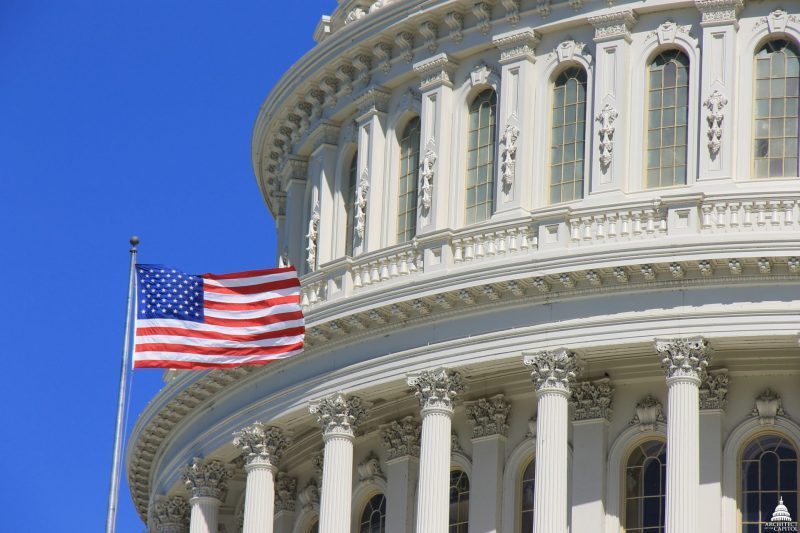Meeting Your Official
May 26, 2017
Stop the Anger
June 16, 2017Improving Access to Capital

Pages of unnecessary regulations, increased costs to consumers, and a lack of capital available to small business – those were the main frustrations Upstate banking leaders voiced in a meeting with Congressional staffers this week.
The Greenville Chamber convened a meeting about reforming and repealing the 2010 Dodd-Frank banking regulation law with senior staffers from Senator Lindsey Graham’s, Senator Tim Scott’s, and Congressman Trey Gowdy’s offices. More than a dozen local banking leaders from banks of all sizes took the opportunity to talk, not about the impact to their bottom lines, but about the increased costs to small business and consumers.
The Greenville Chamber and Upstate Chamber Coalition have made resisting and repealing burdensome regulations a centerpiece of our 2017 federal Congressional agenda. Increased regulations have a direct impact on small businesses and consumers. Bloomberg estimates the total regulatory cost of the Dodd-Frank law to be $36 billion since 2010. In the fourth quarter of 2016 alone there were 6,000 pages of banking regulations created taking the average bank 809 hours to comply, according to the Banking Compliance Index.
That increases prices and drives down profitability for all businesses.
On the consumer side, banks at the meeting this week said the cost of originating a home mortgage has more than doubled since 2009, which are passed directly on to consumers. Statistics from the Greenville Homebuilders show that for every $1,000 in increased costs when buying a home, 520 families are priced out of the market in the Greenville-Spartanburg metro area. That doesn’t take into account the impact of changes to mortgage disclosure rules, which many bankers and realtors say sink numerous deals because of minor changes that don’t substantively change the loan agreement.
The Federal Reserve’s April Small Business Credit Survey showed that 45 percent of businesses applied for credit in 2016, with 76 percent of those receiving “some” funding and only 40 percent receiving the full amount sought. Even sorted by credit risk, businesses with less than $1 million in revenue had trouble receiving funding. The banks blamed that, in part, on the new Dodd-Frank regulations. Community bankers said it is getting more difficult for them to issue loans or lines of credit to smaller businesses, which has historically been the main access point for small businesses to access capital.
Relief could be coming. The House of Representatives could consider the CHOICE Act this week, which promises to be a significant repeal to Dodd-Frank. Staffers for Senator Graham said that bill will be considerably changed once in the Senate – as is expected with the House’s replacement for Obamacare – because of the fact that the bill will need 60 votes and there will be strong opposition from Senators Elizabeth Warren (D-Mass.) and Bernie Sanders (I-Vt.).
Staff also pointed out that President Obama signed into law five changes to Obamacare during his presidency, but no changes to Dodd-Frank since it was signed into law seven years ago.
The group also discussed a number of other major topics, including:
- Consumer Financial Protection Bureau reform: This was discussed mostly by making the agency, and its budget, accountable to Congress.
- Tax Reform Prospects: Some of the smaller community banks in the meeting said they are taxed at personal rates since many of them are S-Corporations, paying higher taxes than the major national banks. Staff said President Trump’s proposal of a 15 percent rate on S-Corporations is probably not realistic, but lowering the rate to 20 or 25 percent was possible.
- The Border Adjustment Tax: Staff said there aren’t enough votes in the Senate to pass the legislation.
- Hacking: The group briefly discussed the cost to banks when major retailers or other major computer hacking incidents occur.
The Chamber thanks the more than a dozen banks and the staff from Senator Graham’s, Senator Scott’s, and Congressman Gowdy’s offices for their participation. We look forward to convening other groups in forums such as this later this year. If your business is affected by regulations included in the Dodd-Frank Act, we’d love to hear from you. Please contact me at [email protected].



